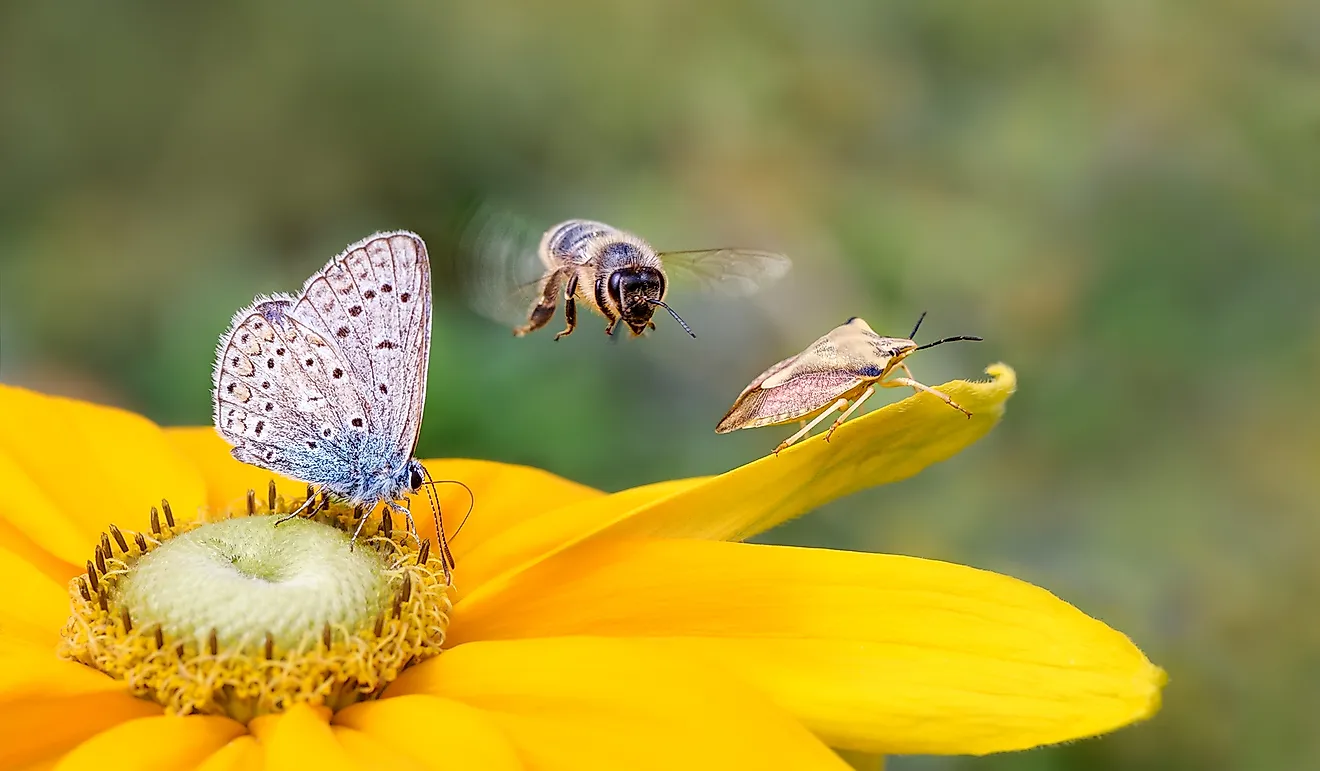- This topic is empty.
- AuthorPosts
- February 16, 2025 at 12:16 am #566301

Insects play a crucial role in maintaining the balance of agricultural ecosystems. While often considered pests, they are essential to the success of agriculture, contributing to pollination, pest control, and the breakdown of organic matter.
These small but mighty creatures significantly influence crop production, soil health, and overall biodiversity.
Understanding their importance in agricultural ecosystems helps highlight the need for their conservation and sustainable management. In this article, we explore the various ways insects contribute to agriculture and why they are indispensable for the productivity of farming systems.
1. Pollination and Crop Fertilization
Insects are among the most important pollinators in agricultural ecosystems, responsible for pollinating a large percentage of flowering plants, including many essential crops. Bees, butterflies, and other flying insects transfer pollen from male to female flowers, allowing for fertilization to occur.
This process is vital for the production of fruits, seeds, and vegetables. Without insect pollinators, many crops such as apples, tomatoes, and almonds would see a dramatic decline in yield. Pollination by insects increases the genetic diversity of plants, improving the resilience of crops to diseases and environmental stressors.
2. Natural Pest Control
Insects play a vital role in controlling pest populations in agricultural fields. Predatory and parasitic insects, such as ladybugs, spiders, and wasps, help regulate the numbers of harmful pests that would otherwise devastate crops.
By preying on aphids, caterpillars, and other crop-damaging insects, these beneficial insects naturally reduce the need for chemical pesticides.
This helps maintain a healthy and balanced ecosystem in agricultural fields, minimizing the environmental impact of farming practices. Insect-based pest control is an essential element of integrated pest management (IPM), promoting sustainable farming practices.
3. Soil Aeration and Decomposition
Certain insects, such as earthworms, beetles, and ants, play a significant role in soil health by improving soil structure. They tunnel through the soil, which helps aerate it and improves water infiltration. This makes it easier for roots to access water and nutrients, enhancing plant growth. Insects also contribute to the decomposition process by breaking down organic matter like dead plants, animal remains, and crop residues. Through this process, nutrients are released back into the soil, enriching it and ensuring that crops receive the essential nutrients they need to thrive.
4. Enhancing Biodiversity in Agricultural Ecosystems
Insects contribute to biodiversity in agricultural ecosystems by creating a complex network of interactions between plants, animals, and microorganisms.
This biodiversity is critical for maintaining the health and stability of the ecosystem. For instance, insects like pollinators and decomposers support a diverse range of plant species, while predatory insects help keep pest species in check.
This balance prevents monoculture systems from becoming overly reliant on chemical inputs and supports the resilience of the entire agricultural system. Increased biodiversity in agricultural landscapes also helps create habitat for other wildlife, promoting a more sustainable approach to farming.
5. Economic Value of Insects in Agriculture
The economic value of insects in agriculture cannot be overstated. Pollination alone contributes billions of dollars to global crop production each year. In addition, natural pest control reduces the need for costly chemical pesticides, lowering production costs for farmers.
By reducing the need for chemical inputs and supporting crop yield, insects help farmers achieve greater productivity and sustainability. The economic benefits of healthy insect populations extend to the entire agricultural supply chain, from growers to consumers, making them a cornerstone of global food security.
Insects are far more than just small creatures; they are integral to the functioning of agricultural ecosystems. Their roles in pollination, pest control, soil health, biodiversity, and economic stability make them indispensable to sustainable farming practices.
As the world faces increasing challenges related to food production and environmental conservation, protecting insect populations is more important than ever.
By understanding and appreciating the importance of insects in agricultural ecosystems, we can develop more sustainable farming practices that support both the environment and the global food supply.
Read Also: History of Agricultural Insurance in Nigeria
- AuthorPosts
- You must be logged in to reply to this topic.

